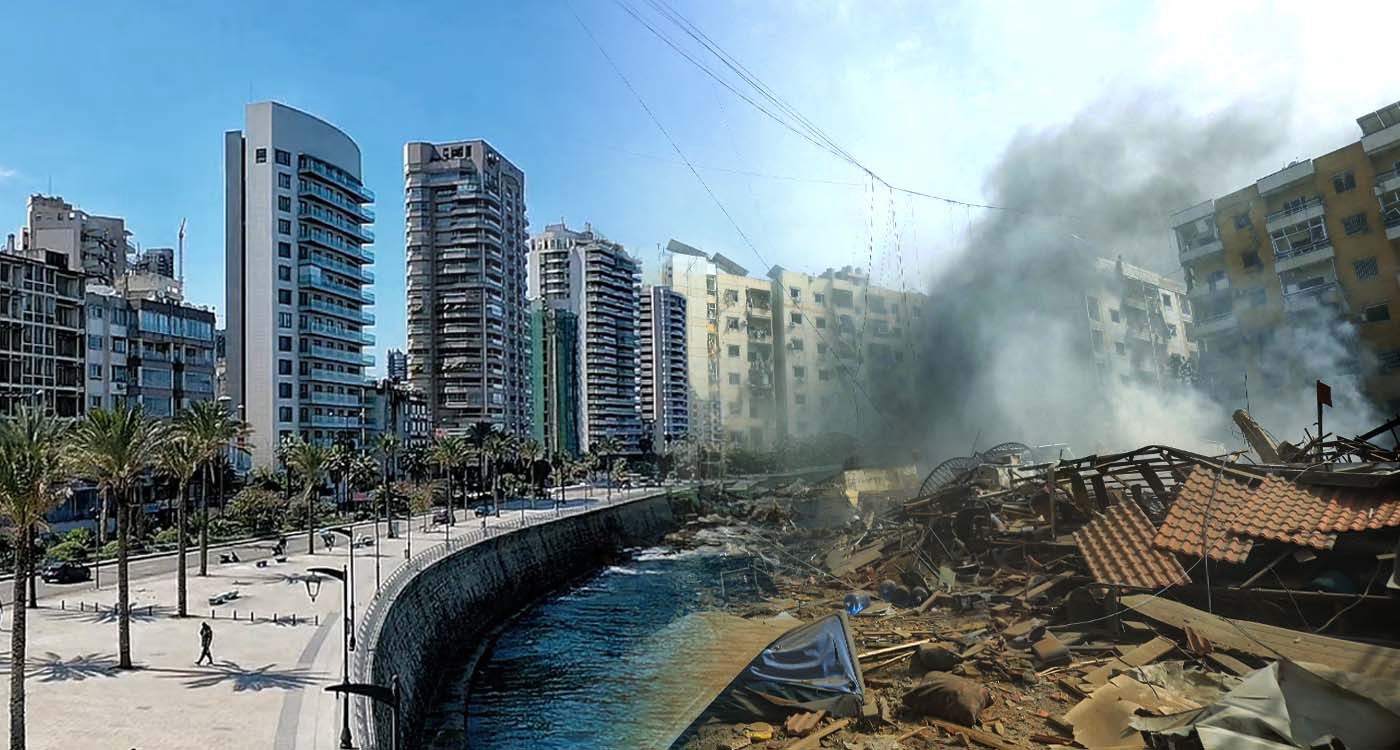
Due to the destruction and instability caused by the war between Hezbollah and Israel, particularly in the southern suburbs of Beirut, many people have been forced to flee to safer regions of Lebanon. The cazas (districts) of Baabda, Metn and Chouf, as well as certain sectors of Beirut, have become refuge areas. How is the security situation reshaping Lebanon’s real estate landscape?
‘Do Not Sell, the Municipality Will Not Allow It’
Beirut’s southern suburbs, commonly known as Dahieh, are a predominantly Shiite area and a stronghold of Hezbollah. They include localities such as Ghobeiri, Burj al-Barajneh, Chiyah, Haret Hreik, Sabra and Chatila. A few kilometers away, Baabda is a city in Mount Lebanon that remains outside Hezbollah’s control. It has served as a refuge for displaced people during periods of war.
A real estate agent, speaking anonymously to This is Beirut, stated that “over the past two years, 90% of buyers have been from the Shiite community.” “During the war, rental prices quintupled compared to their initial rates,” he noted, adding that “although prices have now returned to normal, demand remains unchanged.” “In Baabda, a buyer’s religious affiliation is not a factor; sales depend solely on the owner. However, in other areas like Bsaba, Kfarchima and Bleibel, property sales are strictly reserved for Christians. Additionally, Shiites are now looking to purchase apartments in Metn, Kesrwan and certain parts of Mount Lebanon.” According to him, in areas where sales to Shiites are permitted, there is a significant price difference compared to neighboring regions that refuse to sell to them.
In Hadath, a town on the outskirts of Beirut’s southern suburbs, a long-standing municipal law requires residents to sell exclusively to Christians. The law is promoted under the slogan: “Do not sell your house or land; the municipality will not allow it.”
Skyrocketing Real Estate Prices
Metn, a district in Mount Lebanon where many Shiites are choosing to buy or rent apartments, faces a similar situation to Baabda. Another real estate agent, also requesting anonymity, noted that “in Metn, some municipalities allow sales to people of different sects, unlike places like Bikfaya, where such transactions are seen as a security risk due to tensions with Hezbollah members.”
“I can no longer find apartments to rent; properties for sale are now unaffordable for people with limited budgets,” he said. “Today, prices exceed $300,000, making purchases nearly impossible.” According to him, residents fear another, more aggressive war, prompting them to sell their homes in Beirut’s southern suburbs and buy properties in Metn or other areas perceived as safer. “They want to live in peace and ensure their safety. That’s why many families prefer buying rather than renting.”
Fear of Hezbollah-Targeted Individuals
Joe Kanaan, the owner of a well-known real estate agency in Beirut, told This is Beirut that “a few months ago, the situation was utterly chaotic. Families and individuals were desperately searching for shelter across the city because the war made it impossible for many to stay (in Beirut’s southern suburbs).”
“But many people refused to rent or sell their homes to Shiites, fearing that Israeli strikes might target individuals associated with Hezbollah,” he explained. “Today, the situation is calmer. Things have changed, and people who had rented homes have now returned to their own residences.”
Meanwhile, Bassem Nasser, a real estate agent in Kfarhim (Chouf), told This is Beirut that “the demand for home purchases has significantly declined after the war, as 98% of displaced people have returned home.” He added, “Prices have returned to their pre-war levels.”
Impact on Non-Hezbollah Shiites
Threatened for criticizing Hezbollah’s policies, Mohammad left the country in 2021. The 35-year-old interior architect decided to return to Lebanon during the war to be close to his family. “When the situation worsened and bombs got closer, I started looking for an alternative apartment to my family home in Haret Hreik,” he told This is Beirut. “I contacted many real estate agents, and the first question was always: ‘Are you Shiite?’ My religion has become a form of social categorization.”
“I searched in Haret Hreik, Ashrafieh, Hazmiyeh, Baabda, and even Chouf, but either the prices were exorbitant or Shiites were not welcome in those areas. Eventually, a childhood friend took us in at Mayrouba, a Christian village about 37 km from the conflict zones.”




Comments